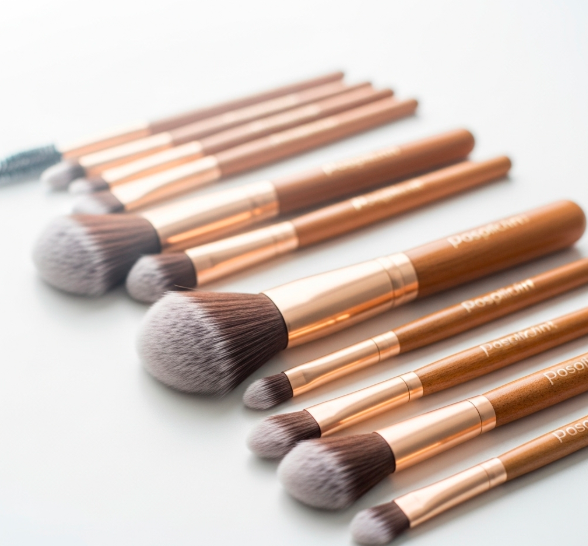Are Makeup Brushes Toxic?
- malenacns
- Apr 15, 2024
- 2 min read
Updated: Jul 28

Makeup brushes are indispensable tools for achieving flawless cosmetic application, yet concerns persist about potential toxins in their bristles or handles. Let’s explore the science behind the materials used in makeup brushes and discover practical steps to reduce any associated risks, ensuring safe and effective use.
The Two Main Types of Makeup Brushes
Natural Hair Brushes:
Traditionally made from animal hair, such as goat, squirrel, or sable, these brushes are known for their softness and ability to hold powder products. However, some individuals may experience allergic reactions to animal hair.
Synthetic Hair Brushes:
Typically crafted from nylon or Taklon fibers, these brushes are a popular vegan alternative. They are more affordable, hypoallergenic, and easier to clean than natural hair brushes.
Potential Toxins in Makeup Brushes
While the bristles themselves are unlikely to be inherently toxic, there are two main areas of concern:
Trace Chemicals in Manufacturing:
During manufacturing, some brushes may come into contact with trace amounts of chemicals, such as adhesives, dyes, or flame retardants. However, regulations in many countries limit the use of harmful substances.
Bacterial Growth:
Makeup brushes harbor dead skin cells, makeup residue, and natural oils, creating a breeding ground for bacteria. Dirty brushes can transfer these bacteria to your face, potentially causing irritation or breakouts.
A 2016 study published in the Journal of Clinical and Aesthetic Dermatology found that over 70% of makeup brushes tested contained high levels of bacteria, highlighting the importance of proper cleaning.
Minimizing Risks
The good news is that there are simple and easy steps you can take to minimize any potential risks associated with makeup brushes:
Choose reputable brands:
Look for individual makeup brush suppliers or brands that are known for their commitment to high-quality materials and ethical sourcing, such as Malena.
Clean your brushes regularly:
Use a good cleanser and warm water to wash your brushes at least once a week, or more frequently if you have sensitive skin.
Replace brushes regularly:
Worn-out or damaged brushes can harbor more bacteria, so replace them every few months to a year, depending on usage.
By following these recommendations, you can enjoy the advantages of makeup brushes while minimizing potential health risks. Proper hygiene is essential for maintaining healthy skin and achieving a flawless makeup application.



Comments